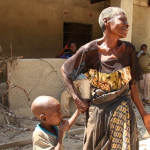Cinecoop ethical production and content policy
Last revised Jan 2016
Cinécoop Productions Ethical Code on Content
Audiovisual content supported by CCP:
- Reflect a commitment to social and environmental change, in the treated subject or in the production process;
- Work to eliminate all forms of oppression, including – but not limited to – racism, sexism, homophobia and ableism, both in the treatment of topics and production practices;
- Engage in artistic and /or experimental forms;
- Embrace educational and pedagogic work (mainly for documentaries);
- Support marginalized and vulnerable people that are featured in films and/or are
involved in the production;
- Respect the integrity of people who are featured and ensure their ideas and opinions
are represented in their original intended contexts.
Cinécoop Productions Draft Ethical Code on Production
CCP wants to enable audiovisual production of its members such that:
- Members of the coop have access to professional production services related to fund raising, budgeting and financial management without losing creative control of their work. Members of the coop are the owners of the coop, so no external parties exert undo influence over a members project.
- The cost of production accompaniment never exceeds more than 10% of the total project budget
- The intent of the coop is not to maximize profit, but rather to enable production of quality audiovisual content with a socio-cultural-ecological mandate, so any surplus is re-invested invested in supporting members’ projects.
- Fair and just working conditions exist for all crew and production team members.
Cinécoop Production Draft Project Screen
If the answer is yes to any of the statements below, the project does not match CCP’s mission. If the answer is not clear, a meeting of the worker members and involved associate members is required to resolve the issue using consensus minus 1 vote.
Is the project used to sell a product or service from the private sector?
Does the project directly and overtly discriminate or incite hatred toward groups based on sex, race, gender, sexuality, or ability?



